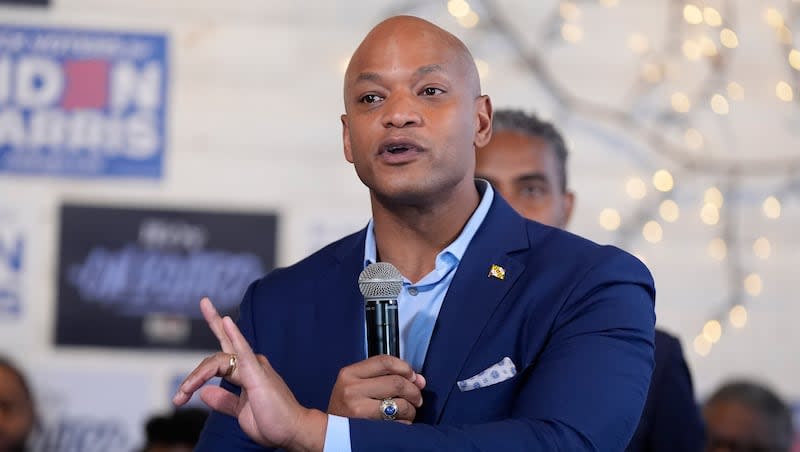Maryland governor pardons thousands of low-level marijuana convictions

As the Biden administration seeks to reclassify cannabis as a less harmful drug and amid widespread recreational use, the governor of Maryland pardoned thousands of people convicted of low-level marijuana crimes.
Gov. Wes Moore, a Democrat, will forgive possession charges for an estimated 100,000 people totaling 175,000 convictions in what he said is a step to heal decades of social and economic injustice that disproportionately harms people of color, The Washington Post reported. Moore said criminal records have been used to deny housing, employment and education, holding people and their families back long after their sentences have been served.
“I’m ecstatic that we have a real opportunity with what I’m signing to right a lot of historical wrongs,” Moore told the Post in an interview. “If you want to be able to create inclusive economic growth, it means you have to start removing these barriers that continue to disproportionately sit on communities of color.”
Moore called the scope of his pardons “the most far-reaching and aggressive” executive action among officials nationwide who have sought to unwind criminal justice inequities with the growing legalization of marijuana, per the Post.
“This executive order is the most sweeping state-level pardon in any state in American history,” Moore said at a signing event Monday. Maryland voters approved a constitutional amendment legalizing recreational marijuana for people 21 and older two years ago.
Maryland officials said the pardons will not result in releasing anyone from jail or prison because none are incarcerated. Misdemeanor cannabis charges yield short sentences and prosecutions for misdemeanor criminal possession have stopped, as possessing small amounts of the drug is legal statewide, per the Post.
In the past fews years, governors in nine states, including Colorado and Nevada, and mayors in several cities have pardoned people with marijuana-related convictions, according to the National Organization for the Reform of Marijuana Laws.
Recreational marijuana is legal in 24 states, while 38 states allow it for medical use, including Utah.
Biden calls for changes in marijuana policy
In October 2022, President Joe Biden issued mass pardons to those with low-level, federal marijuana possession convictions.
“Sending people to prison for possessing marijuana has upended too many lives and incarcerated people for conduct that many states no longer prohibit. Criminal records for marijuana possession have also imposed needless barriers to employment, housing and educational opportunities,” he said in a statement at the time.
The pardon was a step toward Biden’s effort to decriminalize marijuana and change federal attitudes toward the drug.
At the time, Utah Gov. Spencer Cox met the president’s move with skepticism, saying, “an executive action like this only weeks before an election is nothing more than a desperate attempt to win votes.”
Utah law does not allow the governor to pardon anyone. That authority rests with the Utah Board of Pardons and Parole, which requires a full hearing before taking action.
In May, the Department of Justice took a significant step toward reclassifying marijuana as lower risk and less harmful, with Biden posting a video on social media saying no one should go to jail for using or possessing the drug.
The move, which Biden called “monumental,” would downgrade marijuana from its current classification as a Schedule I drug, which includes heroin, LSD and ecstasy, to a Schedule III drug, which includes codeine, ketamine and some anabolic steroids. Rescheduling cannabis would for the first time acknowledge its medical benefits at the federal level but not legalize recreational use. It would ease federal restrictions on marijuana research, which could lead to more studies.
Last summer, the Department of Health and Human Services recommended that the Drug Enforcement Administration reclassify cannabis under the Controlled Substances Act. The U.S. Food and Drug Administration also concluded that marijuana should be rescheduled.

